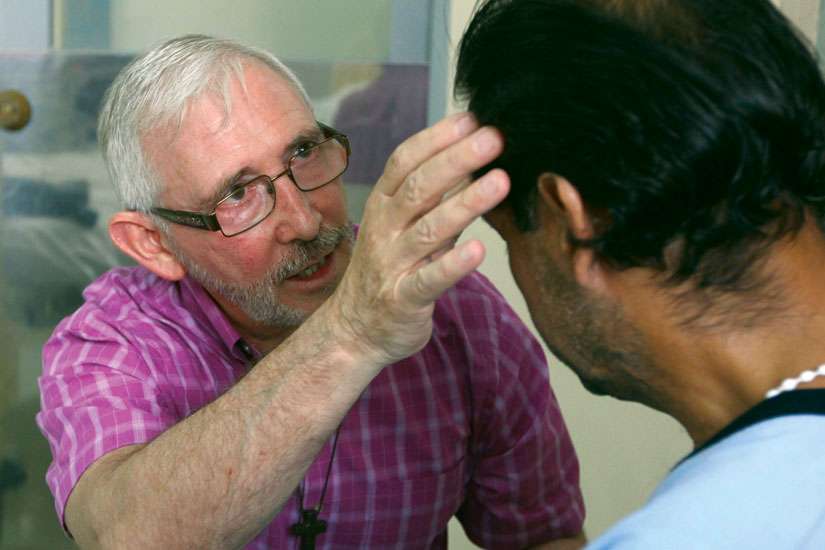“The request for euthanasia or assisted suicide is in direct contradiction to the baptismal call of the dying believer to proclaim at all times, especially at the approach of death, that ‘It is no longer I who live but Christ who lives in me,’ ” the bishops write.
Priests are encouraged to “implore the sick person with gentle firmness” to reject an assisted death.
“If the person, however, remains obstinate, the anointing cannot be celebrated,” the bishops say.
The guidelines appear in a 32-page document for clergy that outlines when people are eligible to receive certain sacraments or a Catholic funeral. The bishops write that to merely initiate the process, to “have incited and officially arranged for someone to kill them,” places a person in an “objective state of sin, which is gravely disordered.”
The document, however, grants that a person might not be aware that assisted suicide and euthanasia are grave sins. Their freedom may be impaired through “depression, drugs or pressure from others,” it says.
“If the penitent, having been made aware of the gravity of the situation, is open to learning the Church’s teaching on this issue, and open to reconsidering the decision, the priest can absolve,” says the document. “If they are not open at least to prayerfully considering the rescinding of their request — now that they know it is a grave sin — they would be choosing to do something gravely wrong.”
However, a person who is contemplating an assisted death, but has not initiated the process, should be allowed the sacrament of anointing. “This is a precious opportunity in the life of a person to encounter Jesus Christ.”
Although the Church permits funerals for people who commit suicide — because “we are not able to judge the reason the person has taken that decision” — it may not be possible in many circumstances to have a Christian funeral for someone who freely chooses and refuses to reconsider an assisted death. However, the bishops advise considering the family, which may “need the prayer and support.”
“Perhaps the family did not will the assisted suicide or euthanasia of their loved one and is looking to the Church for the assistance and comfort of her intercession for mercy,. In such a situation, provided there would not be cause for public scandal, the funeral rites could be celebrated.”


